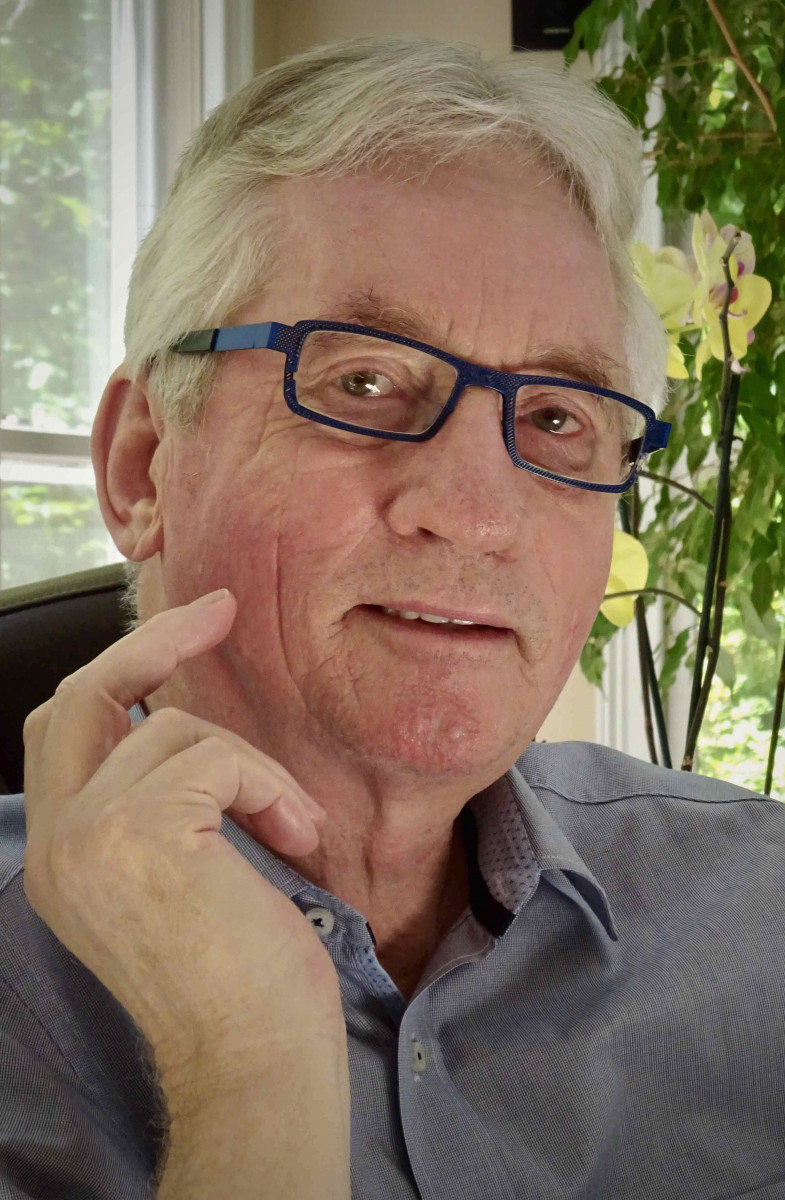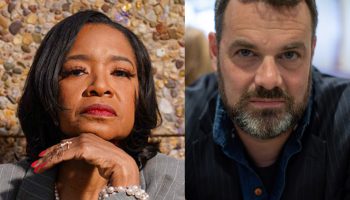ANNALEE HUBBS – COPY & DIGITAL EDITOR

Some would say we’re naturally a very selfish species, and that only through religion can we become moral. Frans de Waal thinks that’s nonsense.
de Waal also thinks, and has thought for the past 25 years, that animals have empathy — that they respond to and are affected by the emotions of others.
Around the early days of this research, de Waal was doing observations on chimpanzees who console each other. If a chimp cried because he lost a fight, was beaten up, or fell out of a tree, others would approach and embrace him, kiss and groom him to calm him down. de Waal noticed the same consolation responses in chimps that researchers were seeing in children.
From that point, de Waal became interested in the issue of empathy as a mammalian characteristic.
There was initially quite a bit of resistance to de Waal’s ideas, but now, it’s well accepted and researched — there are studies on rodents, dogs, horses, elephants, dolphins — and de Waal is familiar with giving lectures on animal empathy and intelligence, and the evolution of empathy as a whole.
“Empathy is not an acquired characteristic for most people,” he said. “Only a very small minority of people lack this capacity.”
For his first public lecture in nearly two years, de Waal visits Chautauqua at 10:30 a.m. Tuesday, Aug. 3 in the Amphitheater to discuss his book, The Age of Empathy: Nature’s Lessons for a Kinder Society, as a part of the Chautauqua Lecture Series’ Week Six theme “Building a Culture of Empathy.”
de Waal is the C.H. Candler Professor in Emory University’s psychology department and the director of the Living Links Center at the Yerkes National Primate Research Center in Atlanta.
He is professor at Utrecht University, Netherlands, and in 2013 was awarded an honorary doctorate there.
The way human empathy used to be tested, de Waal said, was by psychologists who would go to a human family, ask someone to cry and see how young children responded. Very young children who could barely walk approached the crying person and stroked them to calm them down. In that same study, they found that dogs do the same thing — they lick faces and put their heads in laps. The psychologist who did these studies, Carolyn Zahn-Waxler, concluded that if the dogs do the same thing as the children, and we call it empathy, then why don’t we call it empathy in the dogs?
We are social animals; empathy is not something you need to learn. Empathy is something you’re born with.”
— Frans de Waal
C.H. Candler Professor,
Emory University
de Waal said he published Age of Empathy after the financial crisis of 2008, when “everyone was saying, ‘We need a different kind of society — this is not going well. We need a society less based on money and more based on human feelings.’ ”
In his lecture, de Waal will focus on how empathy and emotions are similarly expressed between humans and animals through photos and videos.
He will focus especially on the issues of his last book, Mama’s Last Hug: Animal Emotions and What They Teach Us about Ourselves: how we recognize emotions, how deep the emotions of animals are and why it has taken so long for people to recognize that they have emotions.
It’s important to talk about empathy being a natural characteristic in a community like Chautauqua because, in a cynical view, humans are presented as selfless and competitive, and only secondarily as nice, kind and empathic, de Waal said. He thinks this is wrong.
“We are social animals; empathy is not something you need to learn,” he said. “Empathy is something you’re born with.”
The topic of animal empathy used to be taboo partly for practical reasons, de Waal said. If people eat animals, they don’t want to talk too much about their emotions.
“These characteristics that we emphasize in our society are not cultural products, or products of religion or products of philosophy,” de Waal said. He hopes his lecture sparks a discussion about this idea.
de Waal also does studies on altruism, and the popular belief that only humans can do favors for one another. Altruistic tendencies are also found in many other species, he said.
“If you want to build a society with more collective responsibility, and more kindness — another characteristic that we inherit from other species — we definitely don’t need culture and religion to get there. We have that already in us,” he said. “That’s what I want to emphasize.”




